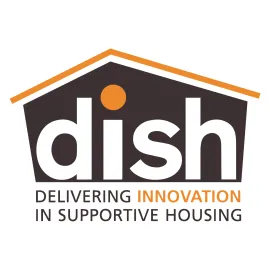Delivering Innovation in Supportive Housing (DISH) II

Organization
Founded in 2006 by Doug Gary and Lauren Hall, Delivering Innovation in Support of Housing (DISH) SF provides property management and community building for individual adults who have experienced long term homelessness, and other trauma and illness, in San Francisco. The organization currently serves 570 tenants in eight buildings and has 80 employees. DISH is the largest fiscally sponsored project of the Tides Foundation, which provides administrative services (including HR, accounting, and legal). DISH’s nine million-dollar annual budget is funded in part by tenant rent but primarily by the city of San Francisco under contracts.
Situation
DISH is in the early stages of developing a training and consulting practice focused on improving the operations and outcomes of supportive housing nonprofits in the Bay Area, California and the US. In 2018 ACT helped DISH evaluate the feasibility of this new endeavor; this work has led to the successful implementation of ongoing DISH training modules with the Corporation for Supportive Housing, as well as the identification of a handful of potential clients interested in bespoke consulting from DISH.
Project Objectives
DISH’s executive directors asked ACT to facilitate a prioritization conversation for the DISH Consulting start-up phase, to develop and assist in implementing tools for managing this prioritization process across the entire DISH organization, and to evaluate the intake form and pitch deck for the bespoke client process.
Project Overview
ACT initially met with the DISH Executive Directors and one of its board members to outline challenges the organization was facing in the implementation process for DISH Consulting. A key need for prioritization, given that DISH runs multiple housing units in a rapidly changing San Francisco city landscape while simultaneously starting up its consulting practice, was to develop and socialize a clear, well communicated key prioritization process, with accountability for results. The ACT team facilitated a meeting with the executive team, introducing tools and securing commitments for implementation, then followed up with meetings to review prioritization, confirm implementation, and edit and improve tools. ACT finished the project with a review of key process forms and its strategy for bespoke consulting work.
Key Recommendations
- Develop key priorities skeleton as an executive team, including a 6 month work plan, and detailed execution plans for top 3 priorities
- Implement prioritization tool (spreadsheet) for ongoing prioritization process
- Socialize prioritization process across the organization - say what will be done and do it, park everything else
- Utilize executive team, board to implement accountability measures
- Carefully vet bespoke opportunities to account not only for potential income for DISH, but also for potential impact on improving the supportive housing ecosystem as a whole